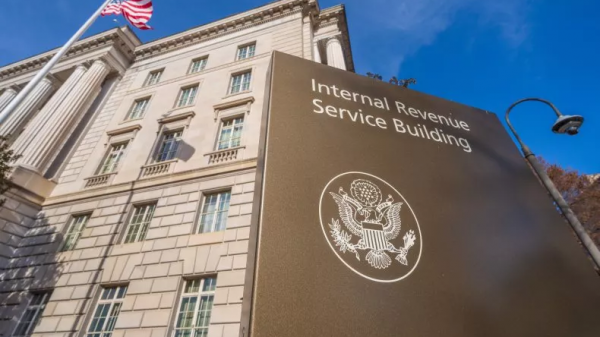Israeli tanks push into Rafah

Shawdesh desk;
Israel’s military operation in Rafah has set truce negotiations with Hamas ‘backward’, mediator Qatar said on Tuesday, adding that talks have reached ‘almost a stalemate’, reports AFP.
‘Especially in the past few weeks, we have seen some momentum building but unfortunately things didn’t move in the right direction and right now we are on a status of almost a stalemate,’ prime minister Mohammed bin Abdulrahman Al-Thani told the Qatar Economic Forum.
‘Of course, what happened with Rafah has set us backward.’
Qatar, which has hosted Hamas’s political office in Doha since 2012, has been engaged — along with Egypt and the United States — in months of behind-the-scenes mediation between Israel and the Palestinian militant group.
‘There is no clarity how to stop the war from the Israeli side. I don’t think that they are considering this as an option even when we are talking about the deal and leading to a potential ceasefire,’ Sheikh Mohammed said.
Israeli politicians were indicating ‘by their statements that they will remain there, they will continue the war. And there is no clarity on what Gaza will look like after this’, he added.
Meanwhile, Israeli tanks forged deeper into eastern Rafah on Tuesday, reaching some residential districts of the southern border city where more than a million people had been sheltering, raising fears of yet further civilian casualties, reports Arab News.
Israel’s international allies and aid groups have repeatedly warned against a ground incursion into refugee-packed Rafah, where Israel says four Hamas battalions are holed up.
The World Court, also known as the International Court of Justice, said it would hold hearings on Thursday and Friday to discuss a request by South Africa seeking new emergency measures over the Rafah incursion, which Qatar says has stalled efforts to reach a ceasefire.
South Africa’s demand is part of a case it brought against Israel accusing it of violating the genocide convention in Gaza, and which Israel has called baseless. Israel will provide its views on the latest petition on Friday, the ICJ said.
Israel has vowed to press on into Rafah even without its allies’ support, saying the operation is necessary to root out remaining Hamas fighters.
‘The tanks advanced this morning west of Salahuddin Road into the Brzail and Jneina neighbourhoods. They are in the streets inside the built-up area and there are clashes,’ one resident told Reuters via a chat app.
Palestinian residents of western Rafah later said they could see smoke billowing above the eastern neighbourhoods and hear the sound of explosions following an Israeli bombardment of a cluster of houses.
Hamas’s armed wing said it had destroyed an Israeli troop carrier with an Al-Yassin 105 missile in the eastern Al-Salam district, killing some crew members and wounding others.
In a round-up of its activities, the IDF said its forces had eliminated ‘several armed terrorist’ cells in close-quarter fighting on the Gazan side of the Rafah border crossing with Egypt. In the east of the city, it said it had also destroyed militant cells and a launch post from where missiles were being fired at IDF troops.
Israel issued evacuation orders for people to move from parts of eastern Rafah a week ago, with a second round of orders extending to further zones on Saturday.
They are moving to tracts of land such as Al-Mawasi, a sandy strip bordering the coast that aid agencies say lacks sanitary and other facilities to host an influx of displaced people.
UNRWA, the main United Nations aid agency in Gaza, estimates some 4,50,000 people have fled Rafah since May 6, warning ‘nowhere is safe,’ in the enclave of 2.3 million.
The war has pushed much of Gaza’s population to the brink of famine, the UN says, and has devastated its medical facilities, where hospitals, if working at all, are running short of fuel to power generators and other essential supplies.
James Smith, a British emergency room doctor volunteering in hospitals in southern Gaza, said he had been told by a World Health Organisation official that some emergency fuel had made it into the Gaza Strip, potentially enough for six days.
Fighting across the Strip has intensified in recent days, including in the north, with the Israeli military heading back into areas where it had claimed to have dismantled Hamas months ago. Israel says the operations are to prevent Hamas, which runs Gaza, from rebuilding it military capacities.
The Palestinian death toll in the war has now surpassed 35,000, according to Gaza health officials, whose figures do not differentiate between civilians and fighters. It said that 82 Palestinians were killed in the past 24 hours, the highest death toll in a single day in many weeks.
Israel launched its Gaza operation following a devastating attack on October 7 by Hamas-led gunmen who rampaged through Israeli communities near the enclave, killing some 1,200 people and taking more than 250 hostages, according to Israeli tallies.
In the Zeitoun neighbourhood of Gaza City in the north, bulldozers demolished clusters of houses to make a new road for tanks to roll through into the eastern suburb.
In northern Gaza’s Jabalia, a sprawling refugee camp built for displaced Palestinians 75 years ago, residents said Israeli forces were trying to reach as deep as the camp’s local market under heavy tank shelling.























Leave a Reply